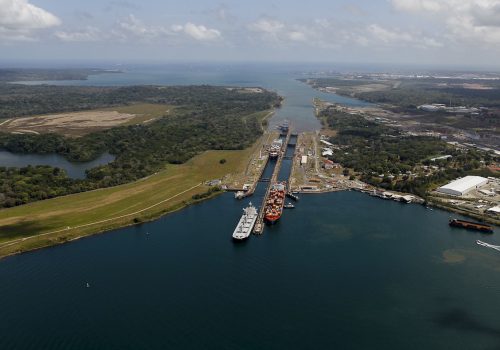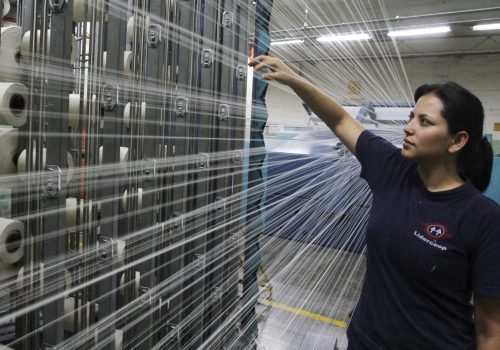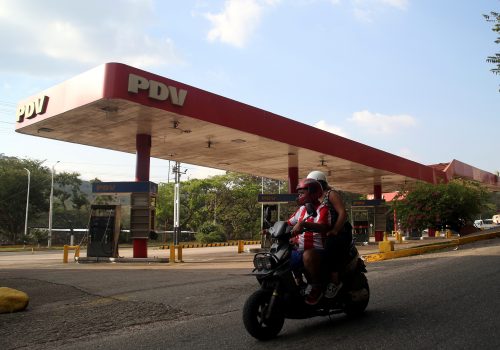Invest in peace
When Colombia signed a peace agreement in 2016 after fifty years of conflict with the Revolutionary Armed Forces of Colombia (FARC), we knew the real work was just beginning. A peace agreement is just a piece of paper until the commitments written on it become a reality.
As chairman and CEO of the Howard G. Buffett Foundation, a private family foundation with an annual grant-making budget of more than $200 million, my job is to deploy the most risk-tolerant capital available—philanthropy—to invest in ideas that improve the lives of some of the most impoverished and marginalized people in the world. Our foundation focuses its funding on improving food security through agriculture, mitigating conflict through development, building capacity to combat human trafficking, and securing the safety of as many people as possible. Although we created our foundation in 1999 with an emphasis on conserving wildlife and habitat, we soon shifted our focus to include people because conservation and sustainability become viable when people have choices beyond simple survival. I can think of no better investment than in people—like the Colombians— who are resilient enough to have survived decades of conflict.
The real question we faced in Colombia was not whether to invest in development but where to start. Colombia’s 200-year relationship with the United States provided a framework for answering that question. Philan-thropy is, in essence, venture capital that measures the return on investment based on the positive impact on people’s lives. Our funding can test new ideas, but we need public sector support to bring those ideas to scale in every part of the country that needs investment. Working with government—locally and nationally—is essential. Colombia’s close relationship with the United States gave us a roadmap for working with Colombia’s government institutions. Within a few months of our initial outreach to the administration of President Juan Manuel Santos, we made the first commitment that eventually would total nearly $45 million to support humanitarian demining operations in rural areas. This foundational investment would redeploy the military to focus on development and secure land for further investments in smallholder agriculture, smaller-scale voluntary coca-crop substitution, and land titling projects.
Afterwards, the foundation worked with the administration of President Iván Duque to develop a holistic approach to security and development, focusing investments on Tibú, a municipality in the Catatumbo region that borders Venezuela. Catatumbo is marked by high levels of violence, poverty, and drugs. About a third of the militants in the National Liberation Army continue to operate in the region as they dispute power with other drug trafficking groups and smaller factions of dissidents. The presence of armed groups has fueled the cultivation of illicit crops in Tibú, which pro- duces more coca—the base ingredient of cocaine—than any other Colombian municipality. Why focus investment in the part of Colombia with the most difficult challenges? Because if we can demonstrate success here, we know success is possible everywhere.
Focusing our efforts in Catatumbo also allowed us to complement Colombia’s investments. A 2018 government strategy, “Sustainable Catatumbo,” has brought more than $175 million in development investments to the region, but health, education, and policing remain underfunded, and agri- cultural assistance requires a multi-pronged approach to remove barriers. As an outside funder, we consider every investment through the lens of how any successes we achieve could be sustained or replicated locally and nation- ally after our funding is completed. That informed an approach that mixes one-time capital investments and pilot projects, which could attract future funding if we demonstrate success.
Roads are vital to providing rural farmers access to markets for alter- native crops to replace coca. They also serve as a deterrent to armed groups and the drug trade because they improve the government’s ability to secure those areas. In September 2020, the foundation signed an agreement to build or improve nearly 50 miles of tertiary and 4.5 miles of regional roads in Catatumbo for $45 million. The National Roads Institute is scheduled to complete the first six regional and tertiary roads by the end of 2022, with follow-on funding for the remainder contingent on performance. These roads will enable market access and security, allowing farmers to get better prices for their production of legal crops, thus reducing the incentive to grow coca.
Land titling is another essential element in providing legal alternatives to coca cultivation for rural farmers. The foundation has provided a $4.5 million grant to Mercy Corps to assist nine hundred farming families in obtaining land titles in Tibú and one thousand families in reducing food insecurity. A separate, parallel grant to the National Coffee Federation is exploring ways these farming families can voluntarily replace their coca production with alternative crops that are legal and profitable, in partner- ship with a private-sector buyer committed to purchasing their products at fair prices. The rural farmers we’ve met want to grow legal crops, but they also need to feed their families. Obtaining land titles allows them to access financing to make this transition and invest in high-value, legal crops like cacao and coffee. Land titles also raise the stakes for growing coca because farmers risk losing their land if they do not make the switch.
Many organizations and donors invest in development only when conflicts end. Often, our foundation’s investment decisions are based on the theory that peace cannot be secured and sustained without investing in development first. Communities need to see what life could be like without conflict to fight for that peace. That is why we complement investment in activities like agriculture that will take years to produce tangible results with investments that could improve lives today. That includes limited human itarian support for internally displaced persons and investments in new health clinics, shelters, schools, and even police stations. These choices are informed by the needs articulated by local communities and governments in partnership with the national government to ensure that the personnel to support this new infrastructure is included in government budgets.
Finally, no investment in post-conflict development is sustainable without addressing the issue of ex-combatants. They need investment too, so they can have viable livelihoods that do not involve conflict, but this investment must be made in a way that is fair to the individuals who never took up arms against the government. The foundation supports the World Food Programme’s work with FARC ex-combatants living in fourteen of the twenty-four reintegration camps across Colombia, including the one in Tibú. The projects provide a way for ex-combatants to gain new skills, earn a living, and make amends with their communi ties, many of which are victims of the armed conflict.
Over the last six years, our work in Colombia has underscored that his- tory will not judge success based on the signing of the peace accords but rather by Colombia’s ability to fulfill its commitments. This requires an enormous investment in development and close coordination among all stakeholders to ensure these commitments meet the needs of the people most affected. The role of outside donors is to listen and support efforts to achieve that objective.
As Colombia and the United States celebrate two hundred years of cooperation, it’s important to recognize that Colombia’s success or failure affects us here at home. Succeeding in Catatumbo will reduce the coca production that ultimately becomes cocaine in US cities. The stability we create in Colombia helps stem the flow of migrants across our borders. The peace and development we demonstrate in Colombia is the beacon of hope we give people living in Venezuela that there is an alternative to poverty, lawless- ness, and autocracy. Colombia is poised to prove to the world that it will be known for the peace it has brokered at home rather than the conflict it has endured for fifty years. That is a future worth investing in.
Related Allies essays
A roadmap for a new type of engagement
This moment opens the door for a reimagined US partnership with Colombia based on a shared vision for a more prosperous, inclusive, and sustainable future.
Related program

The Adrienne Arsht Latin America Center broadens understanding of regional transformations and delivers constructive, results-oriented solutions to inform how the public and private sectors can advance hemispheric prosperity.
Image: Soldiers of the Seventh Division of the Colombian National Army escort workers hired by the government during an operation to eradicate coca plants at a plantation in Yali, northeastern Antioquia, September 3, 2014. REUTERS/Fredy Builes (COLOMBIA - Tags: CRIME LAW MILITARY POLITICS DRUGS SOCIETY) - GM1EA94180H01



